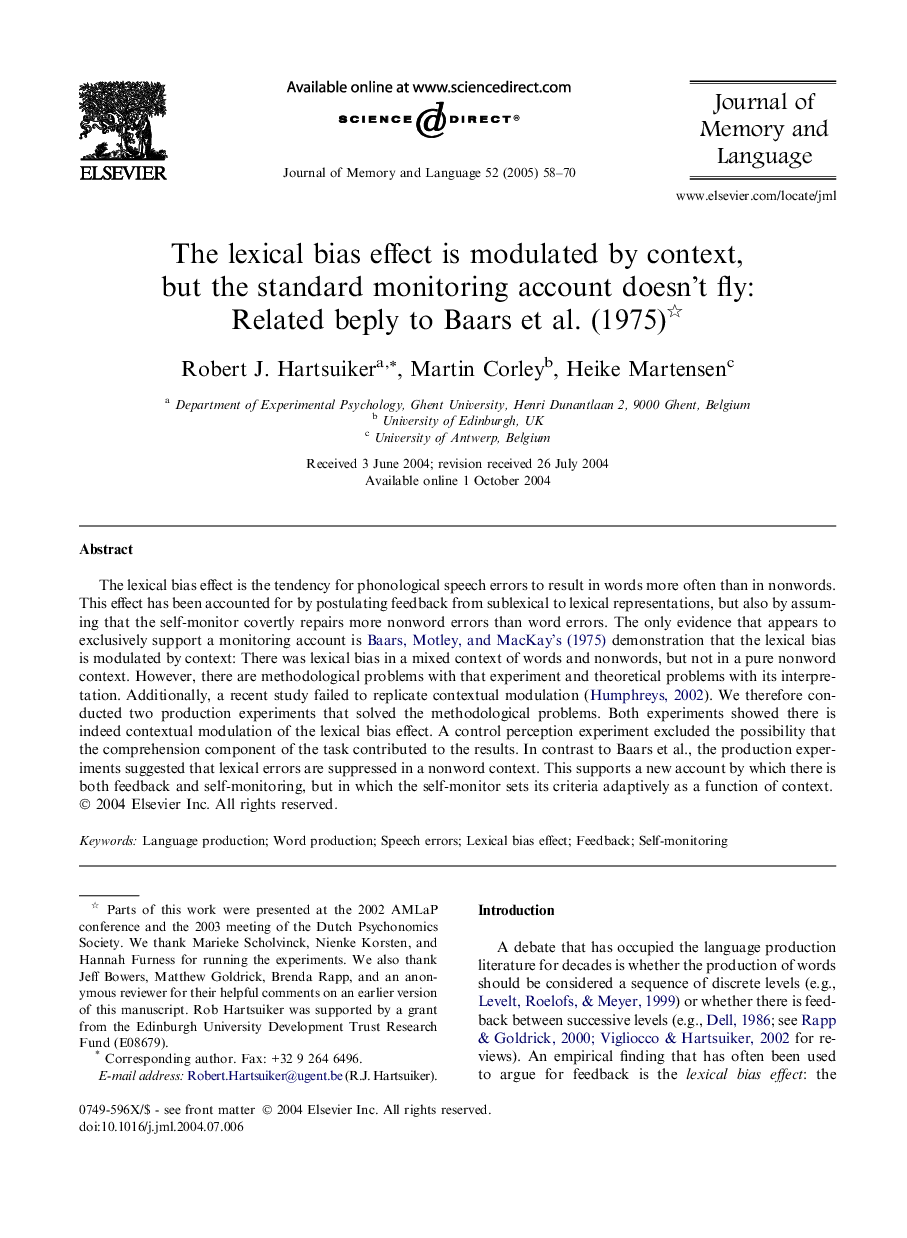| Article ID | Journal | Published Year | Pages | File Type |
|---|---|---|---|---|
| 10459817 | Journal of Memory and Language | 2005 | 13 Pages |
Abstract
The lexical bias effect is the tendency for phonological speech errors to result in words more often than in nonwords. This effect has been accounted for by postulating feedback from sublexical to lexical representations, but also by assuming that the self-monitor covertly repairs more nonword errors than word errors. The only evidence that appears to exclusively support a monitoring account is Baars, Motley, and MacKay's (1975) demonstration that the lexical bias is modulated by context: There was lexical bias in a mixed context of words and nonwords, but not in a pure nonword context. However, there are methodological problems with that experiment and theoretical problems with its interpretation. Additionally, a recent study failed to replicate contextual modulation (Humphreys, 2002). We therefore conducted two production experiments that solved the methodological problems. Both experiments showed there is indeed contextual modulation of the lexical bias effect. A control perception experiment excluded the possibility that the comprehension component of the task contributed to the results. In contrast to Baars et al., the production experiments suggested that lexical errors are suppressed in a nonword context. This supports a new account by which there is both feedback and self-monitoring, but in which the self-monitor sets its criteria adaptively as a function of context.
Related Topics
Life Sciences
Neuroscience
Cognitive Neuroscience
Authors
Robert J. Hartsuiker, Martin Corley, Heike Martensen,
